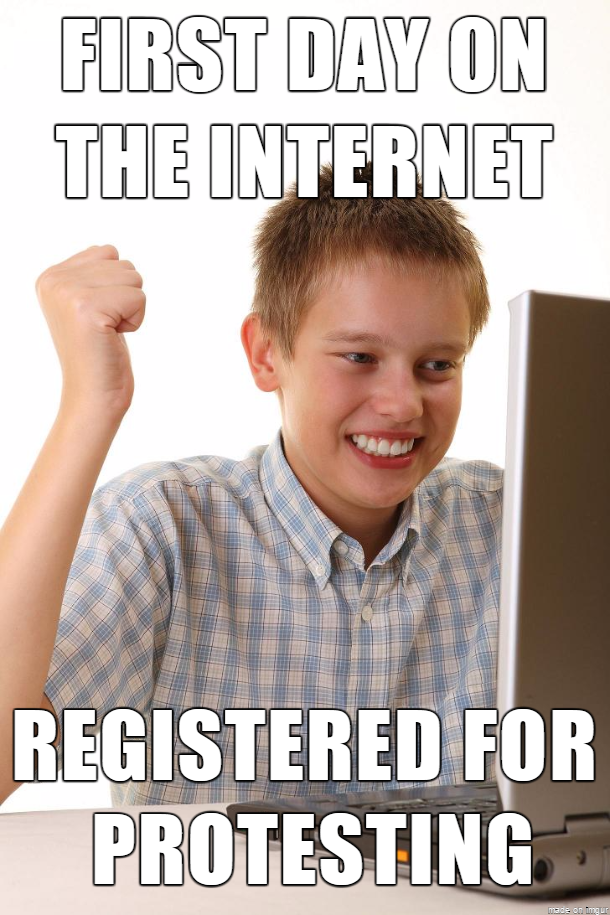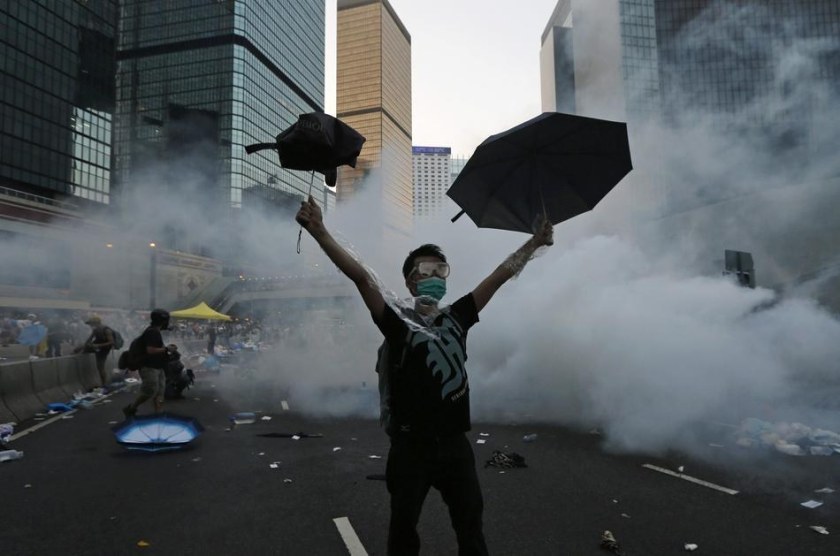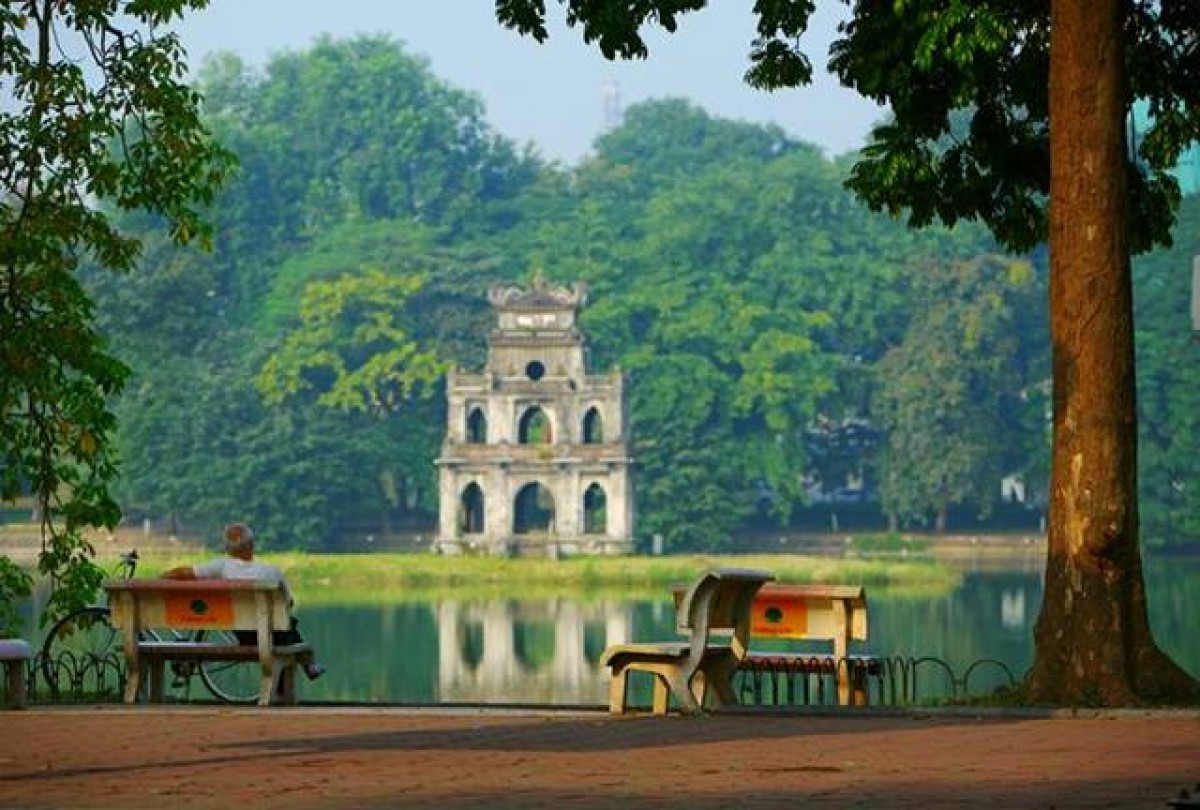It is obvious that thanks to the Internet and distributed control, many barriers have been eradicated. One important benefit of this transition is how people are able to communicate their own opinions to those sharing the same thoughts without being blocked by mainstream media. Thanks to social media, communication is now easier than ever.
This huge improvement has fueled revolutions from all over the world where people are restrained by governments which put heavy control and regulation on mainstream media. In places where “free speech” is something impractical, social media appears to be a pain reliever. Such phenomenon as the #ArabSpring or #EuroMaidan can be successful due to the communication network that people created based on online social platform such as Twitter or Facebook. Social media brings about connectivity, which was essential because ‘connectivity is power’, said our lecturer Ted.

In this post I want to mention another recent phenomena which fit in this context: Hong Kong’s 2014 protests, so called the “Umbrella revolution”. As we have already known, Chinese government has put extreme regulation on Hong Kong, which used to be politically independent from its mother country. Therefore, it was nearly impossible for Hong Kong people to raise their voice through mainstream media. However, the revolution in 2014 was significantly successful thanks to the use of social media, where tweets and posts from students were spreaded out and led to the participation of thousands of citizens who were not students. People also used social media to update about the process, the same as other protests in Tunisia or Ukraine. One of the leaders of the protest was Joshua Wong, who was only 17 at the time, empowered by social media and now elected to Hong Kong’s legislative council.

Therefore, I can conclude that social media has turned zero to hero, empowered who are not empowered, and given voice to those are not heard.

I loved your post this week. Very clear and concise. Its interesting to see more and more people turning to the internet as a form of freedom, voicing their opinion and ultimately being heard and joined by like minded people. I think this is a very powerful and positive way the internet has allowed freedom to many people who were suppressed by the government like you said.
#BlackLivesMatter (http://blacklivesmatter.com) is another example of a movement that is continuing to grow all around the world.
Keep up the good work.
LikeLiked by 1 person
Hi Jade,
That source you suggested is really useful as I consider equality is essential in this world’s development. I was shocked seeing black people treating unequally and that hashtag is necessary and I believe it’s gonna be powerful.
Thanks for the comment.
Cuong.
LikeLike
Taking the ovreeivw, this post hits the spot
LikeLiked by 1 person
Hi there. Very nice website!! Man .. Excellent .. Superb .. I will bookmark your site and take the feeds additionally…I am happy to find so much helpful information here within the post. Thank you for sharing..
LikeLike
Hey there! This is a really good post! You’ve provided a great range of examples and you delved into Hong Kong “umbrella revolution” really well. It’s true, social media has broken down the barriers of time and space and has enabled connectivity for people across the globe. However, there is also the dark side of “slacktivism” where people simply “click” global issues away. But I think when done right, the internet can be a powerful medium which can lead to real change. Overall, really good post! Keep up the good work 🙂
LikeLiked by 1 person
Hey Jyotsna
You got it right. Everything has two sides and the Internet is no exception. It’s a two-slide sword that can either create significant changes or bring about massive damage. Therefore it is essential to make the best out of it. But I still have a strong belief that we, the new generation, the online growing kids, will use the Internet properly to get things done.
Thanks for your comment.
Cuong.
LikeLike
You’ve written a really concise blog post and used great examples from this weeks topic. You’re right in saying that social media has broken down barriers and has allowed for international communication between everyday people. We are now able to be informed of events happening all around the world through hashtags and posts. So we are being informed of issues, but are we actually doing anything other than writing a tweet? Slacktivisim is becoming a real issue, however dismissing the notion of posting about important events on social media means that the world would be uninformed.. what are your thoughts?
LikeLike
Hey there,
I am really interested reading your question that ‘are we actually doing anything other than writing a tweet?’. You made me think in the way that, okay we are tweeting about events and so on, but what’s next ?
Personally I consider social network users, no matter how many they are, cannot have significant influence on events in term of real action. However, I strongly believe that there are actually people who have the authority to make real movements toward those events and what they need is the timing and accurate information, what can be provided by social network users, by the small tweets that we put up everyday.
Thanks for your comment and interesting conversation.
Cuong.
LikeLike
Hi there! This is absolutely a well written post to cover up this week’s topic! The information is relevant, very clear, and easy to follow and understand. Social media is truly powerful that giving people freedom to speak out what they want and allows the connectivity of people all over the world which in turn bringing greater power as a whole. Also, the “umbrella revolution” was a great example applied. It was social media that helped to brought people together and rose out their voices. But during that period, it was like a disaster in Hong Kong. I never thought that the movement could be this massive.
LikeLike